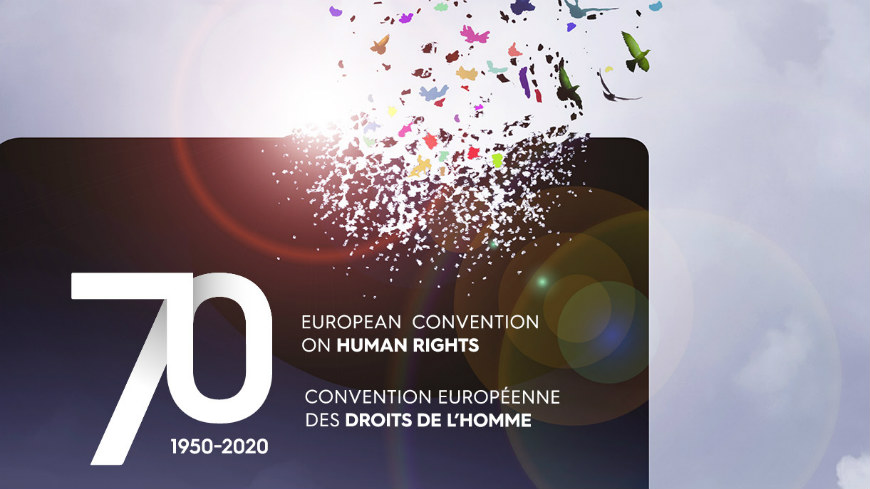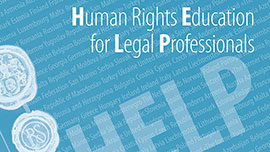On 23 November, Council of Europe Office in Pristina and German Embassy in Pristina - Kosovo* held an online conference “70 Years of Our Convention”. The event was organised on the occasion of the 70th anniversary of the European Convention on Human Rights (European Convention) and the official beginning of the German Presidency of the Committee of Ministers of the Council of Europe (November 2020 – May 2021).
The event hosted 15 distinguished international and national speakers and more than 60 participants from judiciary, academic community, civil society, embassies and international organisations. After welcoming remarks provided by the Head of the Council of Europe Office in Pristina, Mr Frank Power, and German Ambassador to Kosovo*, Mr Jörn Rohde, opening statements were delivered by the Acting President and Speaker of the Assembly of Kosovo* Dr Vjosa Osmani-Sadriu, Vice President of the Constitutional Court of Kosovo* Mr Bajram Ljatifi and Mr Christophe Poirel, Director of the Human Rights Directorate, of the Directorate General for Human Rights and Rule of Law, Council of Europe.
Participants further engaged in a substantive discussion in two thematic sessions, focussing on the impact of the European Convention on human rights, democracy and the rule of law in last 70 years, and on how to make the best use by the national courts of the case law of the European Court of Human Rights.
The first thematic session was moderated by Mr Jeremy McBride, distinguished international human rights expert with more than 40 years of relevant experience, who was speaking about the key achievements in human rights, democracy and the rule of law in Europe since the adoption of the European Convention. Mr Axel Berg, Special Advisor of German Foreign Office, introduced the priorities of German Presidency of the Committee of Ministers. The intervention of Mr Andrew Forde, Council of Europe expert, was dedicated to the relations between the Convention and local context in Kosovo*, with chronological developments of integration of its standards into the legal and institutional framework. The first thematic panel concluded with presentation of the Chairwomen of the Kosovo Women’s Network Ms Ariana Qosaj-Mustafa who elaborated on the impact of the European Convention on women rights and gender equality, highlighting the most pressing challenges in this respect in local context including gender-based violence and discrimination.
The second session, “Bringing the Convention Home”, explored modalities for consideration and application of the case law of the European Court of Human Rights by national courts. It was moderated by the Vice Dean of the Law Faculty in Pristina, Ms Luljeta Plakolli- Kasumi. In her contribution Ms Mirjana Lazarovska-Trajkovska, former judge of the European Court in respect of North Macedonia, highlighted the landmark cases of the European Court. Mr Lawrence Early, former Jurisconsult of the European Court elaborated on the importance of keeping consistency of the case law at all judicial instances. He gave practical example of the peer-to-peer professional exchange and several useful practical arrangements in knowledge sharing and management which could be replicated for capacity building of legal practitioners.
In addition, two compilations of the case law on the Right to Freedom of Expression, were presented by the media law specialist Ms Flutura Kusari. The event concluded with presentations of the Chairperson of the Judicial Council, Mr Skender Çoçaj, and President of the Supreme Court, Mr Enver Peci, who gave several recommendations on practical arrangements on how to make the best use of the case law of the European Court by the national courts and discussed such examples, as training of judges of all court instances through placements with the European Court, mentoring and coaching assignments with support of international experts, participation in professional networks in the regional and Europe-wide context.
Overall, the event provided a forum for productive discussions and various useful recommendations to be further integrated into the work of national courts and future interventions implemented with support of donors and international organizations. On behalf of the Council of Europe, the conference was organised under the project "Improving the Protection of European Human Rights Standards by the Constitutional Court of Kosovo*" supported by Norway.





